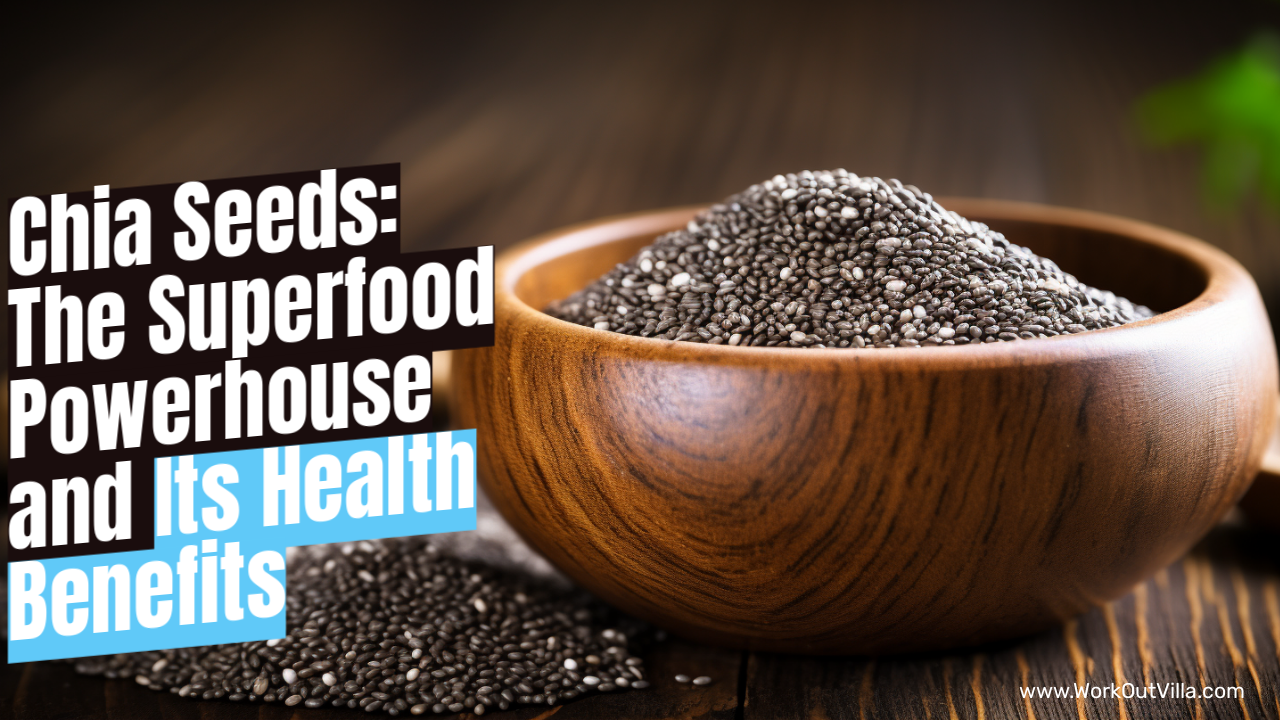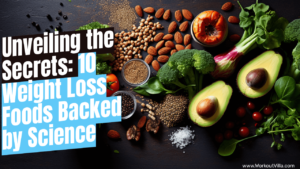Exploring the Rich Nutrient Profile of Chia Seeds: The Amazing Superfood
Chia seeds, revered as a ‘superfood’, inherently offer a wealth of essential nutrients. These tiny, nutrient-dense seeds are packed with omega-3 fatty acids, making them a significant addition to your daily diet.
Omega-3 fatty acids are recognized for their wide-ranging health benefits, notably in supporting heart health. The substantial concentration of these acids within chia seeds contributes to maintaining optimal heart function and overall body health.
Additionally, the nutrient profile of these seeds includes a variety of critical vitamins that are instrumental for effective energy metabolism, further leveraging the importance of their inclusion in everyday meals.
The dietary fiber content of chia seeds also stands out as a critical beneficial element. High-fiber foods promote efficient digestion, eventually controlling appetite and aiding weight loss.
On another note, the seeds’ rich mineral content, particularly calcium and phosphorus, supports normal body function and enhances energy levels. Considered a versatile addition to your diet, chia seeds seamlessly blend into your meals while delivering an impressive range of nutrients.
This magnifies their stature as a ‘superfood’, capable of making significant contributions to your overall vitality and, of course, blood health.
Health Benefits of Chia Seeds
- Rich in Omega-3 Fatty Acids: Essential for brain and heart health.
- High in Antioxidants: Protect against free radicals, reducing chronic disease risk.
- Great Source of Fiber: Promotes digestive health and aids in weight management.
- Protein-Rich: Beneficial for muscle building and repair, ideal for vegetarians and vegans.
- Contains Essential Minerals: Including calcium, phosphorus, and magnesium, supporting bone health.
- Low in Calories: Nutrient-dense, making them a healthy addition to any diet.
- Versatile in Cooking: Easy to incorporate into smoothies, yogurts, and baked goods for a nutritional boost.
The Power of Omega-3 Fatty Acids in Your Daily Diet
Thanks to its remarkable nutrient profile, incorporating chia seeds into your diet provides numerous health benefits. With a high fiber content, these white seeds promote healthy digestion and are an excellent source of Omega-3 fatty acids.
Omega-3 fatty acids are known for reducing the risk of heart disease and fostering optimal health. Beyond their heart-healthy attributes, these essential fats also contribute to weight management, assisting in achieving healthy weight targets and maintaining strong bones.
Versatile in nature, chia seeds can be added to various dishes. They can be used as an egg substitute in baking, incorporated in milk for a protein punch, or even sprinkled on salads for an instant–a boost of nutrients.
Nutrient-dense chia seeds aid in metabolic health and are an excellent source of carbohydrates for sustained energy release, essential in meeting weight management goals.
A diet green-lighting chia seeds will unlock the power of soluble fiber and Omega-3 fatty acids, ultimately paving the way towards a disease-resistant life.
Unlocking the Weight Management Potential of This Powerful Superfood
Exploring the nutritional profile of this superfood, it’s clear why it has become a popular component of many health-conscious diets. This nutritious food is a rich source of antioxidants, essential for combatting harmful free radicals in the body.
The superfood is also an excellent source of protein, making it an essential part of any balanced diet. A high protein content not only aids in maintaining and repairing tissues but also assists in regulating blood sugar levels, promoting stable blood sugar levels.
This sustained release of energy makes this superfood an excellent choice for weight management.
The benefits of incorporating this superfood into daily intake extend beyond just weight management by providing a significant nutritional boost.
One unique aspect of this food is its gel-like texture when soaked, which can assist in promoting a sense of fullness and support regular bowel movements. This texture is satisfying and aids considerably in maintaining healthy cholesterol levels and nourishing the skin.
However, while boasting numerous health advantages, the potential effects of interaction with certain medications need to be considered, making it essential to monitor its use in conjunction with medication.
Therefore, this powerful superfood positively influences health from various dimensions, making it one of the best choices for those aiming to better their health.

The Role of Antioxidants: Boosting Optimal Health and Reducing Disease Risk
Chia seeds, native to Central and South America, are a rich source of antioxidants that combat oxidative stress, contributing to optimal health.
These tiny, nutrient-packed superfoods are known to reduce the risk of chronic diseases by neutralizing harmful free radicals in the body. This incredible health advantage, in tandem with its nutritional benefits, such as high dietary fiber content, can support your health goals by promoting brain health and enhancing insulin sensitivity.
In addition to these health benefits, chia seeds’ high dietary fiber content aids in digestive health, helping to alleviate digestive discomfort. They can absorb a significant weight in water, forming a gel-like substance that could act as a prebiotic and support gut health.
Apart from this, they are an excellent source of nutrition for cardiovascular health, owing to their ability to improve lipid profiles and reduce inflammation. Whether consumed as a seed beverage, seed pudding, or in its raw form, consultation with a healthcare professional is vital to maximize chia seeds’ health benefits and use them effectively towards achieving your health goals. Chia pudding, a popular way to incorporate chia seeds into your diet, can provide enticing health benefits due to the nutrients found in chia seeds that promote heart health, support strong bones, and improve blood sugar management. Additionally, the omega-3 fatty acids in chia seeds can help lower high blood pressure, further contributing to overall heart health. Chia seeds also help lower total and LDL (bad) cholesterol in your blood, reducing the risk of heart disease (15).
The Heart Health Advantage: Lower Cholesterol Levels and Improved Cardiovascular Health
Promoting heart health and managing cholesterol levels can be challenging. However, including chia seeds, a nutrient powerhouse, in your daily diet can play a crucial role in such an endeavor.
The seeds are rich in essential amino acids, vitamins, and fiber, aiding nutrient absorption and improving digestion. Beyond these benefits, fiber also helps suppress food cravings by maintaining a feeling of fullness, avoiding overeating, and consuming less nutritious foods.
Chia seeds also can lower harmful cholesterol levels. This function is vital in safeguarding against cardiovascular ailments and controlling blood pressure. Thus, regular consumption of chia seeds can significantly improve heart health and overall well-being.
Despite the wholesome benefits of chia seeds, note that their association with certain medical conditions and counter medications is not entirely risk-free. Individuals with nut allergies may find incorporating chia seeds into their diet challenging without experiencing allergic reactions.
A careful medical consultation is recommended before increasing the daily intake of chia seeds, particularly in such cases. However, the ease with which chia seeds can be added to meals offers numerous opportunities for regular consumption.
For instance, chia can be used in homemade energy bars or incorporated into any everyday meal, providing essential vitamins and promoting healthy bones. In summary, while offering compelling health benefits, the consumption of chia seeds should be done mindfully with consideration for individual health susceptibilities and needs.

Amplifying Energy Levels and Metabolic Health with Sustained Energy Release
Deriving its origins from ancient civilizations, “Chia Seeds,” specifically those from the Hispanic plant, have long been acknowledged for their tremendous energy-boosting attributes.
This plant-based protein exudes a steady release of energy, which is beneficial for many physical activities.
Notably, their high fiber content aids in solving digestive issues, particularly for individuals with diabetes who need healthier alternatives for blood glucose management.
Alongside the extra energy, the combination of protein, fiber, and omega-3 fatty acids contribute to a healthy heart, essentially chipping in for a healthier lifestyle.
Moreover, the practicality of incorporating chia seeds into one’s daily consumption further amplifies their appeal. Mix chia seeds in water and allow them to gel, creating an egg replacement perfect for vegan baking.
Synergize them with maple syrup and other nutritious ingredients to craft homemade granola bars that offer a sustained energy boost throughout the day. Their ability to increase vitality while promoting digestive health through their potent fiber content marks them as a fantastic dietary mainstay.
Undeniably, embracing chia seeds is pivotal in the quest for elevated energy levels and improved metabolic health.
Harnessing the Digestive Health Advantages: From Fiber Content to Improved Digestion
Chia seeds, often hailed as the ‘superfood of the 21st century’, are a comprehensive source of nutrients vital for ideal health and well-being.
The seed market is increasingly recognizing these 10 Evidence-Based Health Benefits, ranging from boosting cellular health and aiding digestion to even leveraging seeds for weight loss.
These minuscule powerhouses are an affordable source of fiber that creates a beneficial seed gel in the digestive system, aiding the journey to weight loss and supporting overall digestive health.
What makes these tiny seeds stand out is their versatility.
Chia Seed Pudding
Ingredients cups of milk, 1/2 cup of Chia seeds, and your preferred sweetener can provide an abundant source of fiber and nutrients, not to mention tasting delicious!
A Chia Seed Smoothie Ingredients cup of almond milk, 1/4 cup of Chia seeds, a ripe banana, and a handful of blueberries can do wonders for those who prefer a more refreshing option.
Not only do these seed drinks offer fantastic health benefits, but they even sharpen weight loss efforts and offer a nutritional punch.
So whether you’re following an amaranth seed diet or love chia seeds, incorporating these gems can undoubtedly aid in weight loss and amplify your digestive health.
Exploring the Versatility of Chia in Meals: From Breakfast Bowls to Energy Bars
Chia seeds are an ideal choice for individuals following a balanced diet plan. They offer a wide range of nutrients in a remarkably compact package.
One of the most significant advantages of incorporating chia seeds into the diet is their impact on blood sugar control. Their high fiber content slows the rate at which complex carbs are digested and assimilated into the body.
This slow release of energy prevents blood sugar spikes, keeping energy levels consistent and warding off the typical blood sugar roller coaster. Chia seeds lower blood glucose levels and can contribute to blood sugar control in the bloodstream.
In terms of adaptability, the versatility of chia seeds in meals ranges from breakfast bowls to energy bars, making them one of the healthiest and easiest-to-use choices.
As a primary staple in Aztec diets, chia seeds are equally a choice for vegetarians, pairing well with many dishes. The fatty acids in the seeds offer many health benefits, from supporting heart health to enhancing brain functionality.
Furthermore, these seeds contain Phytic acid that assists in assimilating nutrients, ensuring that a balanced diet serves its ultimate purpose – providing adequate nutrients to the body.
Indeed, making healthy choices, such as incorporating chia seeds into one’s diet, brings us closer to achieving optimal health.
• Chia seeds are packed with essential nutrients and can be easily incorporated into a balanced diet.
• They help control blood sugar levels due to their high fiber content, which slows the digestion of complex carbs and prevents sudden spikes in blood sugar.
• Consistent energy levels can be maintained by consuming chia seeds and avoiding the typical highs and lows associated with fluctuating blood glucose levels.
• The versatility of chia seeds means they can be added to various meals, from breakfast bowls to energy bars.
• As a staple food in Aztec diets, these super-seeds are also an excellent choice for vegetarians or those seeking healthier meal options.
• Chia seeds contain fatty acids that support heart health and enhance brain functionality.
• The presence of Phytic acid in chia helps facilitate nutrient assimilation, ensuring that your body receives all the benefits from a balanced diet.
• Incorporating healthy choices like adding chia seeds into one’s diet is a step towards achieving optimal health.
In conclusion, incorporating chia seeds into our meals adds variety and provides numerous health benefits. Their versatility allows them to fit seamlessly into any diet plan – making them an ideal choice for anyone looking to improve their overall well-being through nutrition.
Incorporating Chia Seeds into Your Daily Intake for Strong Bones and Skin Health
Among the many advantageous effects of chia seeds, one that often stands out pertains to managing bad cholesterol and skin health. Distinguished as a powerful superfood, chia seeds have immense potential to keep cholesterol in check.
The small yet potent seeds actively help reduce harmful cholesterol levels, steadily paving the way for enhanced cardiovascular health. Chia seeds also harbor the strength to protect the skin from damage caused by free radicals and environmental factors.
With high amounts of vitamin E, this superfood has a demonstrated capacity to keep the skin moist and healthier, all while exhibiting notable antioxidant properties.
The concept of superfoods has become increasingly relevant in modern dietary practices, and chia seeds genuinely exemplify the power of superfoods. This fantastic food has a low-calorie content but doesn’t skimp on nutritional benefits.
The fiber richness of chia seeds aids digestion, making them an ideal addition to daily meals. Be it breakfast bowls or energy bars, incorporating chia seeds into your delicious meals can offer a concentrated combination of vitamins, minerals, and antioxidants.
However, as with any food, awareness of the potential side effects is essential. Although chia seeds are generally safe to consume, confident individuals, especially those on blood-thinning medication, should consult their healthcare provider due to the potentially damaging effects.
But in the broader scope, the advantageous effects far outweigh the potential risks, making chia seeds a noteworthy addition to most diets.
Potential Side Effects: Interactions with Medications and Considerations for Certain Medical Conditions
Despite the myriad health benefits of chia seeds, they may interact with common medications, making it crucial for individuals with certain medical conditions to consider their consumption carefully.
For instance, chia seeds’ abundant fiber content could affect the absorption of carbohydrates in the body, which might interfere with medication prescribed for diabetes.
Similarly, those on anticoagulants may need to regulate the intake of chia seeds due to Omega-3 fatty acids, which can influence blood clotting. Therefore, giving your body time to adjust while introducing this superfood into your diet is advisable.
Simultaneously, the adequate intake of chia seeds may present a few conditions for those with disorders related to bone density.
While chia seeds are a wholesome source of calcium, especially for those preferring dairy-free or plant-based milk over dairy-based milk, their crunchy texture may be challenging for individuals with degenerative bone conditions.
Moreover, while the blend of fiber and its potential antioxidant boost can aid in bowel movements and regularity, in excess, it may exacerbate symptoms of chronic inflammation-related diseases. Hence, tuning the intake according to one’s health priorities and dietary requirements is critical to keeping the body healthy.
Nutrition Facts Label
| Nutrient | Amount (per 28g or 1 ounce) |
|---|---|
| Calories | 137 kcal |
| Total Fat | 8.6g |
| – Saturated Fat | 0.9g |
| – Monounsaturated Fat | 0.6g |
| – Polyunsaturated Fat | 6.5g |
| Cholesterol | 0mg |
| Sodium | 5mg |
| Total Carbohydrates | 12.3g |
| – Dietary Fiber | 10.6g |
| – Sugars | 0g |
| Protein | 4.4g |
| Calcium | 177mg (18% DV) |
| Phosphorus | 265mg (27% DV) |
| Potassium | 44.8mg (1% DV) |
| Zinc | 1.0mg (7% DV) |
| Manganese | 0.6mg (30% DV) |
| Omega-3 fatty acids | 4915mg |
| Omega-6 fatty acids | 1620mg |
Note: The values mentioned are approximate and can vary based on the source and processing of the chia seeds. DV stands for Daily Value, which is a guide to the nutrients in one serving of food.
Q: What potential side effects can Chia seeds cause?
A: In some cases, Chia seeds can cause gastrointestinal issues such as bloating, constipation, or diarrhea due to their high fiber content. They can also cause an allergic reaction in some people.
Q: What medical conditions should consider the consumption of Chia seeds?
A: People with digestive issues or gastrointestinal disorders should consult their doctor before incorporating Chia seeds into their diet. Similarly, those with food allergies should also be cautious.
Q: Are there any interactions between Chia seeds and medications?
A: Chia seeds can interact with certain medications, particularly those related to blood thinning and blood pressure. It is always recommended to consult with your healthcare provider before adding new food to your diet while on medication.
Q: Can Chia seeds contribute to improved heart health and lower cholesterol levels?
A: Yes, Chia seeds contain Omega-3 fatty acids, fiber, and antioxidants, all associated with improved heart health and lower cholesterol levels.
Q: How can Chia seeds be incorporated into the daily diet for optimal health benefits?
A: Chia seeds can be added to various dishes, such as breakfast bowls, smoothies, salads, and baked goods for a nutrient-packed meal.
Q: How can Chia seeds aid in weight management?
A: Due to their high fiber and protein content, Chia seeds can keep you full longer, potentially aiding in weight management.
Q: Do Chia seeds contain nutrients beneficial for strong bones and skin health?
A: Absolutely. Chia seeds are a good source of calcium, phosphorus, and manganese, all essential for bone health. Additionally, the antioxidants in Chia seeds can support skin health.
Q: What role do antioxidants in Chia seeds play in boosting optimal health and reducing disease risk?
A: Antioxidants in Chia seeds can fight off free radicals in the body, reducing inflammation and protecting your cells from harmful oxidative damage, potentially reducing the risk of chronic diseases.
Q: Can Chia seeds provide sustained energy release?
A: Due to their high fiber and protein content, Chia seeds can provide a slow release of energy, helping you stay energized throughout the day.
Q: In what ways do Chia seeds contribute to digestive health?
A: The high fiber content in Chia seeds can aid in better digestion by promoting regular bowel movements and healthy gut flora.
Q: What are the health benefits of chia seeds?
A: Chia seeds are an excellent source of omega-3 fatty acids, fiber, protein, and various micronutrients that have been associated with several health benefits, including improved heart health, digestion, and weight management.
Q: Do chia seeds help with blood sugar levels?
A: Studies have shown that chia seeds may help with blood sugar regulation, potentially benefiting individuals with type 2 diabetes or those at risk of developing the condition.
Q: Can chia seeds contribute to heart disease prevention?
A: Due to their omega-3 fatty acid content, chia seeds are also linked to improved heart health by reducing the risk factors for heart disease, such as high cholesterol and inflammation.
Q: How may chia seeds help with bone health?
A: Chia seeds are high in calcium, magnesium, and phosphorus, which are essential minerals for bone health. Consuming chia seeds regularly may support the maintenance of healthy bones and help prevent bone-related conditions.
Q: What makes chia seeds beneficial for constipation?
A: Chia seeds are rich in fiber, and when consumed with sufficient fluids, they can help promote regular bowel movements and relieve constipation.
Q: What are the risks of consuming chia seeds?
A: While chia seeds offer numerous health benefits, consuming them in excessive amounts or without adequate hydration can potentially lead to digestive issues, choking risks, or interactions with certain medications. It’s essential to consume chia seeds in moderation and with plenty of fluids.
Q: How to add chia seeds to your diet?
A: Chia seeds can be added to various foods and beverages, such as smoothies, yogurt, oatmeal, salads, and baked goods. They can also be used as a thickening agent in recipes or as a topping for dishes.
Q: What are some surprising health benefits of chia seeds?
A: Apart from their well-known nutritional advantages, chia seeds have been associated with promoting weight loss, improving athletic performance, and enhancing skin health, making them a versatile addition to a balanced diet.
Q: Are chia seeds similar to flax seeds?
A: While chia seeds and flax seeds share some nutritional similarities, such as being excellent sources of omega-3 fatty acids and fiber, they also have distinct differences in taste, texture, and nutrient composition. Both seeds offer unique health benefits and can complement each other in a varied diet.
Q: How much chia seeds should one consume in a day?
A: A serving of chia seeds is typically recommended to be around 1-2 tablespoons, which can easily be incorporated into different meals throughout the day to reap their healthful properties without over-consuming.




